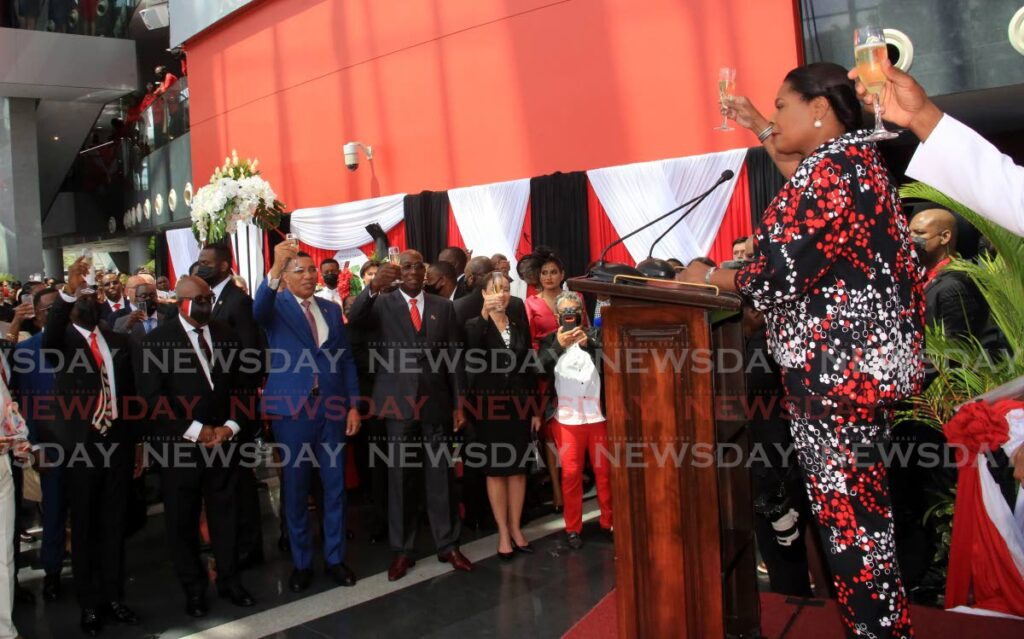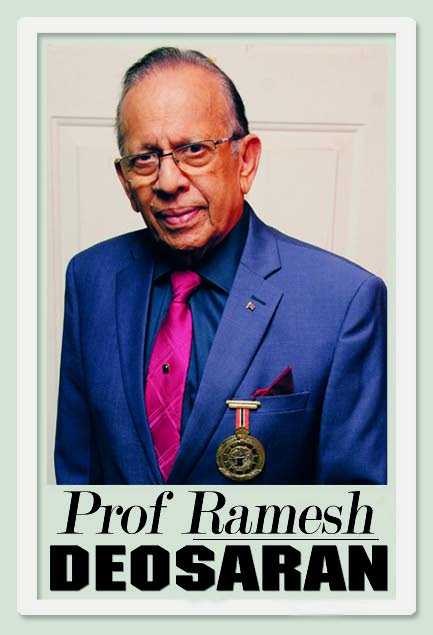When truth takes a holiday

As I listen to what is formally said at celebrations like Eid, Divali, Emancipation, Arrival Day, even on Independence Day anniversaries, I look around and find what is said does not really reflect the surrounding realities.
Last week, I heard the President, the Prime Minister and the Opposition Leader. The differences in their speech content and perspective suggest the story – “beauty lies in the eyes of the beholder.”
Of course, it is not as simple as that, for several reasons.
President Paula-Mae Weekes said: "From our present vantage point, the initial impression of the immediate landscape might be one of a wilderness, given the increasingly brazen criminality, ugly divisive politics, rampant unemployment, distressing reports of child abuse and troubling pockets of poverty.”
Note the cautionary but obligatory words, “might be.” The question of who is constitutionally and largely responsible for treating with these conditions gained no mention. Not on such an occasion.
“Political correctness, being diplomatic and measured,” while appearing “civilised” and culturally valued, often obscure the truth. Now, given opinion polls, media reports, editorials, and numerous citizens’ complaints, the President’s observations are understandably restrained.
Notwithstanding, her words will be interpreted differently according to political party membership. “The ugly, divisive politics” she warned about.
She further noted that at times of national celebrations, “We manage, if only temporarily, to put aside our differences of politics, faith, ethnicity and economic bracket to fully embrace our unique and special identity as Trinbagonians.”
Not really so. In fact, media reports from many citizens of various colours and faith use such occasions to highlight their feelings of relative deprivation, of “political or geographical discrimination” and the long list of identity and physical hardships.
People are still “hurting,” Madam President. Such celebrations unfortunately do not cure the hurt. Rather, they ironically help accentuate the lingering differences. In fact, the sociology of such national celebrations helps expose the divisions.

The bold truth at such occasions is conveniently put aside for political correctness and saving one’s mobility chances. It is “high office” obligation, not really “lying,” but trying to give hope.
In turn, the Prime Minister took a different evangelical perspective, one of political necessity. Now into his seventh year as prime minister, he asked citizens to ignore “the perpetual naysayers,” look at the troubles of other countries, use the celebration as a time to “take a look at ourselves, for some introspection.”
He spoke of “brotherhood” and his “citizens’ agenda” – “the rising crime surge as a national emergency requiring action from all stakeholders, the effectiveness of our national school curriculum, continuous review of our social welfare programmes…and placing family life under our national spotlight.”
Ok, but led by whom?
With surprising humility, the PM asked citizens to quiet down, be tolerant and “have a discipline to remove our personal, selfish interests for the good of TT.” He added: “This is not only about party politics but building a nation.”
Not only about party politics? Truth jumped through the window here. The entire running of government is about “party politics” – “ugly, divisive politics.”
Looks like the President knows more about country than the PM.
Around all this speech-making, it is becoming increasingly obvious that rather than parliament being for the people’s interest, it is the judiciary and media that our people are increasingly turning to for protection and social justice. As evidenced by several court decisions, government bureaucracy has become too unfair, arbitrary and oppressive.
This is a matter worthy of the PM’s serious attention. Too many poor people have to fight expensively for justice against advantage by government bureaucracy. Ask Minister of Local Government Faris Al-Rawi.
As constitutional watchdog, Opposition Leader, Ms Kamla Persad-Bissessar recalled: “The UNC has done more to help make the lives of citizens better in our 11 years of government than the PNM in its 50 years.” She claimed UNC credit for the Heritage and Stabilisation Fund, that every child got a sound education, for “championing” internal self-government for Tobago, and reducing crime, improving roads, water courses, drains, etc. She sought to establish an “alternative truth.”
The government will respond and the public will judge.
In politics, few things carry permanent truths, especially when politics has its own Machiavellian morality by popular demand. And truth takes a political holiday.


Comments
"When truth takes a holiday"